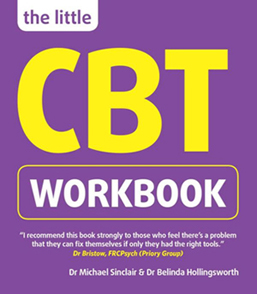What kind of therapy is it?
CBT was developed in the 1970s and is sometimes referred to as the “second wave” of behaviour therapy. CBT added an emphasis on thoughts (cognition) to behaviour therapy’s focus on behaviour.
What problems can it help with?
CBT works in a targeted way, on specific problems: for most mental health conditions, there is a specially tailored version of CBT. It may be most helpful, therefore, where the problem is quite distinct: if you usually feel okay but are having a difficult period, or feel okay in general but have a problem in one area of your life, then CBT can be extremely helpful. If your problems feel a bit more wide-ranging and/or have been going on since you were young, your therapist might want to add in techniques from other forms of therapy
How does it work?
CBT asks us to notice how our thoughts, feelings, and behaviour all influence each other, and sometimes produce vicious cycles that we get stuck in. CBT explores how our thoughts can fuel these vicious cycles when they are inaccurate and overly negative, and teaches us techniques to challenge and replace these unhelpful thoughts. Often it asks us to do this by changing our behaviour: if we do something differently in a particular situation, we will have a different experience of it, and then will think about it differently. CBT does not usually focus much on the past experiences that might have led to your current problems, but rather focussed on how the problems are maintained in the present.
What will a typical session be like?
CBT sessions are interactive - your therapist will take an active role in them - and quite structured. You might spend some time reviewing your week, discussing how you have applied your learning from the last session, covering some new ground in addressing your problem, and preparing to implement your learning in the coming week. You will be asked to complete assignments and practise skills in between sessions, as CBT aims to teach you the skills to resolve your own difficulties outside of sessions, rather than to fix them in the sessions.
What is the evidence?
CBT was the first psychological therapy to be subjected to rigorous scientific testing, and so it has the largest evidence base. It is recommended by the NHS for treatment of depression, anxiety, OCD, panic attacks, PTSD, phobias, eating disorders, and alcohol abuse.
Further reading:
NHS: Cognitive behavioural therapy (CBT)
Mind CBT
Royal College of Psychiatrists
The Little CBT Workbook Paperback by Dr. Michael Sinclair
